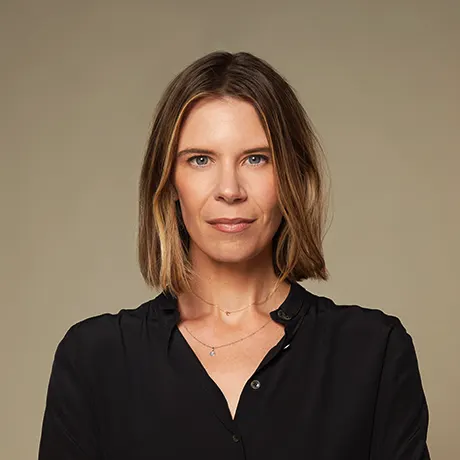Stay in the know
All our latest podcasts delivered right to your inbox.
Lacey has ADHD, and so does her daughter. But their ADHD shows up differently. Lacey is more hyperactive, while her daughter is more on the inattentive side. In this episode of ADHD Aha!, Lacey shares how her daughter’s evaluation shed light on her own ADHD challenges.
Lacey and host Laura Key have a funny conversation about oversharing intimate life details. And they talk about the guilt some moms with ADHD feel.
Related resources
Episode transcript
Lacey: My daughter was actually diagnosed with ADHD through some evaluations with her school teachers and her primary care doctor. We decided that she was going to be put on medication for it as well. And going through that entire process with the evaluation and the questions that they were asking, I slowly started to realize that I had a lot of those traits, and I knew I needed to get myself evaluated.
Laura: From the Understood Podcast Network, this is "ADHD Aha!" — a podcast where people share the moment when it finally clicked that they or someone they know has ADHD. My name is Laura Key. I'm the editorial director here at Understood. And as someone who's had my own ADHD "aha" moment, I'll be your host.
I'm here today with Lacey Armstrong. Lacey is the mother of three kids. She lives in South Carolina and is a marketing manager of the Charlotte Soccer Academy. She also coaches two teams, has a daughter with ADHD, and has ADHD herself. Welcome, Lacey.
Lacey: Thank you, Laura. I'm so excited to be here.
Laura: Tell me what it was like for Candice to go through the evaluation process and what that brought up for you.
Lacey: Yeah. So it was super interesting. It was also really hard and difficult to deal with. But she was having a lot of issues in grade school, as far as reading and paying attention, forgetting everything. And so for years, we worked with her teachers on doing just some behavior modification things, extra checklists, sitting in front of the class. Her teachers would give her extra time on tests.
And when we really realized that it was not working, and we were having her evaluated with her primary doctor, ADHD came into the picture. And so we realized that yeah, she was diagnosed with ADHD. And I mean, it was multiple visits.
People think, oh, you just got diagnosed. No, it was like multiple visits that doctors, multiple things that the teachers had to fill out and give to the doctors to let them know what they were experiencing in the classroom as far as her attention span and her being able to finish tasks without having to be told multiple times. We filled out this questionnaire and she answered high in almost every category, except the hyperactivity.
She had no problem sitting in a chair. Like she could sit in a chair, but she was not listening to you. So she got diagnosed and we started her on a medication regimen.
Laura: For those listening, there are three different types of ADHD. There's ADHD that's predominantly hyperactive and impulsive presentation. There's ADHD that is predominantly inattentive presentation. It sounds like that's Candice, right? And then the third one is ADHD combined presentation. But that second one, that predominantly inattentive presentation, is what people often refer to as ADD — which ADD is ADHD. It's just, it's a subtype of ADHD.
So Lacey you have ADHD.
Lacey: Yes. So going through those questions with Candice, I started realizing these questions that maybe she wasn't answering as far as the fidgeting goes and the feeling like you're on a motor and you're constantly on the go. Maybe she answered those no, she wasn't like that. I was, though, a hundred percent.
But then you also have to add in, I also lose things all the time. I start a task before I finish the other one. I have to be reminded of what I'm doing constantly. I get hyper fixated on certain hobbies. So as we're going through this questionnaire with her doctors, I was like, oh my gosh. I feel like my world is just kind of opening up and I'm understanding myself.
And when the doctor's even asked her, like, is there anyone in your family ADHD or ADD? And I was like, I probably am. I don't know. I've never been diagnosed. Yeah. So like shortly after getting her diagnosed, I got sent to a psychiatrist who in 2019 diagnosed me with the third — the one that you described about the combined ADHD.
Laura: What did that process feel like to you? Did you have doubts? Were you relieved? Tell me how you felt.
Lacey: I was shocked. Because, one, I felt like everything was making sense for once in my life. Everyone would say, how do you do everything that you do? And it's not that I — I felt like I never had a choice. It was like just that, like, physical impulse to be everywhere, do everything, run on a motor. And so when I'm sitting down there with the psychiatrist that's going over these questions with me and asking me all sorts of wild things, pertaining to how I grew up and my childhood, everything was making sense.
Laura: Tell me about growing up. Like what kinds of things were coming into place for you?
Lacey: I was a person that was involved in every sport possible. Everything that I could compete in — swimming, lacrosse, soccer — anything that I could do. But then also on top of that, I was doing chess club, chorus, band, anything that I could learn and challenge myself. Now, I might not be really good at all of those things, but I get hyper fixated and I'd want to do all those things.
Also, if I wasn't challenged in school, I was not paying attention. And I was on to the next thing, which is for me, it was — I figure that ADHD people are, it's not that they're not smart. And it's not that they can't finish tasks. But if they're not challenged, which I had a lot of, I was in GT classes, high level. If you're not challenged, you get bored and you tune everything out. And that's why you get bad grades. Also, doing homework? I'm not going to do it. Not doing homework. I don't want to do it.
Laura: Totally. ADHD has nothing to do with intelligence. You know, it's not a mark of whether or not you're quote unquote smart or not smart. It's about those executive functioning skills and task management.
Lacey: Exactly. And I was like, everything I did growing up was directly related to, is this going to give me enjoyment right now? And if it's not, I'm not doing it. And if I want to break rules, I'm going to break rules. If I don't want to listen to this person, I'm not going to. Like, I was like, oh my goodness, it wasn't that I was a bad kid. It was just, I didn't have anything to help me with my ADHD. Besides sports. Sports really, really helped me. And if I didn't have sports, I don't even know where I would be right now.
Laura: Totally. I was a hardcore volleyball and basketball player growing up. I didn't get diagnosed till I was 30. And sports. I mean, looking back I'm like, what would I have done had it not been for sports?
Lacey: Yeah. And it's perfect for ADHD people because the competition, you have to be the best. I'd be like, that's pretty common in that physical exertion, just to get your brain going, your dopamine going, you know, endorphins, anything to get that naturally.
Looking back, I realize that I didn't have a lot of friends. Like I didn't have many close friends. I always felt like kind of an outsider. And I've talked to a lot of ADHD people that say that that's very common for them. I just, I felt like I never got along with people or they didn't ever understand me.t
Laura: Tell me more about that. What is it that you think was causing that or what you think they didn't get?
Lacey: I don't know. It could just be anxiety overall, but I just always felt like I never fit in. And I don't know if it was just, my mind was constantly thinking while people were talking to me. So I couldn't be in the moment.
That was something that I found out later, too. It was like someone was talking to me, but I could not pay attention to what they were saying. I was listening to what was going on in the background. And I remember that was getting worse and worse as I was getting older. And I was like, there's gotta be something to stop that. But I feel like maybe me not fitting in was I never was really in the moment. My brain was just constantly going.
Laura: Yeah, I relate to that. I was at a high school guidance counselor, who I'm still close with today. She's just a wonderful woman. When I told her much later in life that I have ADHD, she's like, you know, Laura, I remember this time that we were trying to talk to you or interview you for something. And you were running around because you couldn't figure out where you had left your backpack. And you were freaking out because you didn't know where your backpack was. And nobody could get you to pay attention to them because you were so hyperfocused on finding your backpack.
She's one of those people who — when she retells a story, she'll tell it to you every single time you talk to her. And she reminds me of that every single time. To me, it wasn't noticeable, but to her, it just stuck out.
Lacey: That's really funny that you say that about the backpack, because if I'm looking for something or I need to do something, and then, you know, my kids are asking me things, or my husband was asking me things, oh my gosh, I can't, I can't focus right now, OK?
Laura: I feel like that came out of my mouth exactly the way that you said it.
Lacey: And if there's too much noise, if there's too many people asking me too many questions, it's like, my temper just goes through the roof. It's crazy. And I'm like, now that I'm aware, I tell my husband or my kids. I'm like, hey guys, I'm getting a little overwhelmed. And they're like, stop. Don't talk to Mom.
Laura: Good for you. Oh my God, Lacey, I do the exact same thing. My kids are 3 and 5, and they're like, Mom's getting upset.
Lacey: It's like, OK. All right, we'll be quiet. Oh, just for one second. I can't even hear myself think.
Laura: I know. And those poor things. Cause like my time that I get to spend with them is after work obviously, and when they're back from school and preschool. And my medication has worn off at that point. So it's like, I really have to, like, rein it in if I'm going to be on with them.
Lacey: Yes. And not only do you have to deal with mom guilt because now you're like, I really do want to spend time with them. And I really do want to hear about their day. And I do want to listen to their little stories about whatever they want to say. But a lot of ADHD people need that isolation when they get done with work. You can't have any more socializing. It doesn't matter if it's your kids, your husband, you need quiet. I'll find myself like in the car and it's just quiet.
And I'm like, oh, this is so nice because my brain just needs a moment to transition. And I feel bad sometimes because I want to talk to my kids, but I'm like, I can't do it. I can't mentally do it.
Laura: I know. God, I'm going to stop saying how much I'm relating to what you're saying, because it's going to sound like a broken record. But I get so excited all day to see my kids when they come home. But that time when they're home and I'm finishing work, I just need to walk away. And bless my husband, he's amazing. And he knows. And, you know, he helps out in that regard, but that's tricky.
Lacey: Yeah. Now is your husband ADHD or neurodivergent in any way?
Laura: No, he's just French.
Lacey: OK. So blunt and just tells it like it is. OK, I got it.
Laura: Everybody said that. See, OK? So that's a good transition. Cause I´— you've mentioned before about oversharing.
Lacey: Yes, OK.
Laura: Is this a new thing for you? Has this been since you can remember? Tell me about oversharing.
Lacey: So, OK. This is not a new thing, but I'm newly self-aware, if you will. Because as I was diagnosed with ADHD and my daughter was diagnosed with ADHD, I wanted to read and learn everything there was available about ADHD and behavior modification, behavior therapy, all kinds of things. So, as I'm reading through material, I'm starting to read other people's stories.
And there's this thing that ADHD people do, where they just talk a lot because either it's like, they're just nervous or they don't want, like, silence, or they don't want to, you know — they just want to keep the conversation going. So oversharing is a big characteristic for ADHD people, at least for me it is. And I now am so aware when I'm oversharing that it's like cringy. I think about it afterwards. Like, oh my gosh. I'm like, why did I say all that? That was not needed.
I'll tell you a story. I was at the soccer fields. It was after one of the games that I coached, and I saw a friend of mine from an old neighborhood that I used to live in. And we were just chatting and it was just a normal, hey, how are you? You know, casual. She was like, how are the kids doing? I was like, you know, they're great. I said, but I think, I think we're done. I think we're done. And I'm getting an IUD next week. And you know, because, well, I, wasn't going to get one, you know, a couple of years ago because you know, I had the LEEP procedures and I had, like, some stuff on my cervix. I was, just kept going and going. And I was like, OK, when am I going to shut up? Because this is like way, like we're talking about where she has to go with the kids. And I'm like, all of a sudden, now we're talking about my cervix. I'm like, really? Like, does this need to be stated?
Laura: I actually relate to that too, but I'm not going to explain why. First of all, I think that more people should be open about birth control. I'm just going to say that. This is not a podcast about birth control, but, OK. So that happened. You get home. What's your thought process? Like how do you treat yourself after it's something like that happens?
Lacey: I usually replay the conversation. I'm like, how did I get to talking about that? And I'm like, why did I, does she think that that was crazy? Is she like, wow, that was personal? Or, I mean, I know her. She's probably like, whatever, that's fine. But I constantly replay it. Was that oversharing? Was that, what was that? Why did I say that? I'm like, oh, it's just like my ADHD. So then eventually forget about it. But there'll be a couple of days of me just dwelling on it, and then I'll tell my husband and he laughs that he thinks it's hilarious. He thinks all of my oversharing stories are funny, unless it's about him. Then he's like, why did you do that? I'm like, see, no one is safe.
Laura: Oh, wow.
Lacey: Yeah. So it's, it's a lot of like, I'm mean to myself, which I'm working on. And I'm working on therapy, which it's like constantly, you know, I wouldn't let my kids be mean to themselves. So I have to treat myself with some kindness and some grace. But I'm aware of everything I say now, which is hard. I almost liked being like ignorant, but….
Laura: We've written on our website about ADHD and feelings of remorse, and how that feeling of remorse can be like — you can perseverate or get obsessed with feeling bad about what you've done when you do something that, especially now you have that self-awareness, right? Which is beautiful. You overshared, you maybe were a little bit impulsive and sharing information. And then because you're aware of it, you come home and usually like you ruminate on it, right. You spin. And that can be related to trouble with managing emotions, which is also part of ADHD.
Lacey: Yes, absolutely.
Laura: It can be a vicious cycle.
Lacey: And I want to control it. I just can't. And so what I feel like I need to do is give myself more grace and understand it's OK to overshare and that's who you are. I mean, honestly, I'm very authentic. I truly believe that. But sometimes I'm like, people don't always appreciate your authentic self.
And have you heard of masking? Where ADHD people mask who they are, so that way they feel accepted? And maybe oh, of tying back in to how I said I felt like I didn't belong. So I felt like I was constantly masking. I was trying to be relatable. So now that I'm trying to be my authentic self, I'm like, OK, that's who I am. I'm impulsive. As long as I'm not hurting anyone. I think that's just who I am. And I have to learn to appreciate and love that about myself. And that maybe like you said, we do need to talk about birth control or whatever we want to talk about, you know?
Laura: Yeah. First of all, I bet people love that about you. One thing I love about ADHD: It brings a lot of spice of life, right?
Lacey: Yes.
Laura: Hey, it brought you here. I'm grateful that you're here.
Lacey: I am too. And it really is nice. I mean, you know, you keep saying that you relate to that, but for me it feels good to hear that, because then I know that I'm not alone and that it's not just a me thing. And that there are the people that feel exactly how I feel. I mean, that feels really good to be related to.
Laura: We have the numbers and we are powerful, Lacey.
Lacey: Yeah.
Laura: I want to talk more about Candice. And I want to hear about your relationship with Candice. Does she know that you have ADHD as well?
Lacey: Yes. I remember telling her that I was going to go get tested for ADHD as well. And she was like, you are? She was very excited for me, and I feel like we've been closer since I was diagnosed.
And now we can both talk about — we've had medicine increases, both of us. 'Cause I started on a very low dose and it's only been, you know, three years. And she started on a low dose. We've had medicine increases. And medicine isn't the end. It's not the key to ADHD. It's just something to help you, right? It's just a tool.
And so we still have a lot of things that we forget and that we can't correct. You know, we just have to be aware of it. And so when she forgets things, like the other day, literally, my husband went to go pick up her soccer bag from her dad's house. She gets back to the house and her cleats aren't in the bag.
So then we have to go back to the house to go get it. And this just happened yesterday. This is, I mean, but it's constant. And so we both are like aware of that and say, it's OK, because we both have ADHD. We both are forgetting things and we can commiserate together. So it definitely has brought us closer. I look back on it now and I'm very thankful that I was diagnosed later in life to be able to tell her like, it's all good, you know?
It doesn't mean that there's anything wrong with you. It's just something that we're going to both work on together. And we laugh at each other a lot.
Laura: That's awesome. You have that little shorthand.
Lacey: Yes, we do. And we'll be like, oh, my ADHD is acting up again. And she laughs and, and even my younger kids, like they laugh. And my middle child is very serious and he will say, does it make you sad that you have ADHD and that you forget everything?
And I'm like, no. I'm like, because I forget sometimes that I have ADHD. So, no, I, it doesn't make me sad.
Laura: Lacey, it was so nice to have you here. Seriously, so much fun to talk to you. I relate to so much of your story. Thanks for coming by.
Lacey: Same, likewise. It was so nice to talk to someone that relates to everything that I'm going through. So thank you for having me and letting me be a part of your podcast.
Laura: You've been listening to "ADHD Aha!" from the Understood Podcast Network. You can listen and subscribe to "ADHD Aha!" on Apple, Spotify, or anywhere you get your podcasts. And if you like what you heard today, tell someone about the show. We rely on listeners like you to reach and support more people. And if you want to share your own "aha" moment, email us at ADHDAha@understood.org. I'd love to hear from you. You can go to u.org/ADHDAha to find details on each episode and related resources. That's the letter U, as in Understood, dot O R G slash ADHDAha. Understood is a nonprofit and social impact organization. We have no affiliation with pharmaceutical companies. Learn more at understood.org/mission. "ADHD Aha!" is produced by Jessamine Molli. Say hi, Jessamine.
Jessamine: Hi, everyone.
Laura: Justin D. Wright created our music. Seth Melnick and Briana Berry are our production directors. Scott Cocchiere is our creative director. And I'm your host, Laura Key, editorial director at Understood. Thanks so much for listening.
Host
Latest episodes
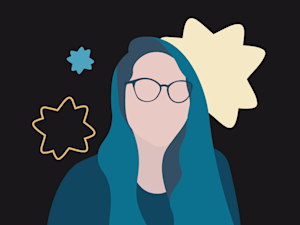
April 16, 2024
ADHD coach Jaye Lin was a gifted kid with undiagnosed ADHD. Now, she’s building communities and helping others cope with ADHD burnout.
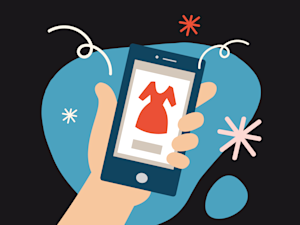
April 2, 2024
Writer Paulette Perhach had money coming in but struggled to keep it in her bank account. An ADHD diagnosis brought her struggles into perspective.
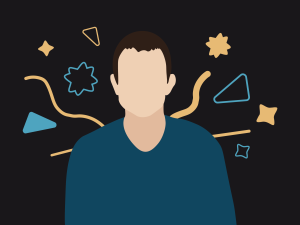
March 19, 2024
Eye to Eye founder David Flink is fighting the “just try harder” myth surrounding ADHD, dyslexia, and other learning and thinking differences.
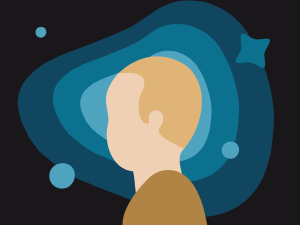
March 5, 2024
Peter Jones used to feel better saying he had a hearing problem rather than considering ADHD. Now, he knows he has ADHD and isn't afraid to say it.
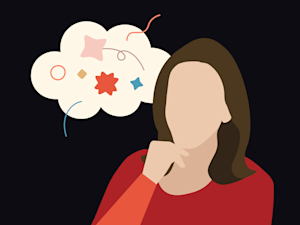
February 20, 2024
Before her ADHD diagnosis, ADHD coach Emily Weinberg thought she was just lazy. But in reality she was stuck in “analysis paralysis.”
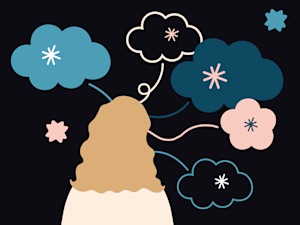
Carol Blumenstein was called an unteachable student. Now, she knows she has ADHD and dyslexia, and supports her five kids who learn differently, too.

January 23, 2024
Executive coach, actor, and former criminal defense attorney Ernest Anemone shares his ADHD story — and why he questions the term “attention deficit.”
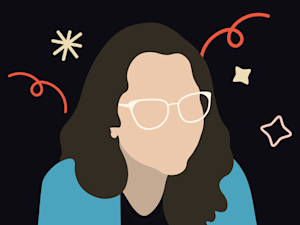
January 9, 2024
ADHD and post-traumatic stress disorder (PTSD) symptoms can look similar. And they can morph into what Hannah calls “a trauma ball of blame.”
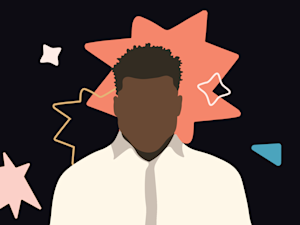
December 26, 2023
Livingston Steele was diagnosed with ADHD about a year into working at Understood.org. His experience and work have given him immense empathy for people with ADHD.
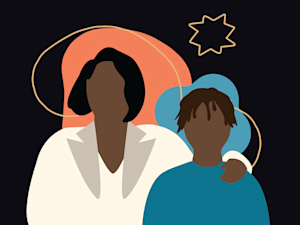
December 12, 2023
Wendy Zanders is a decluttering coach with ADHD. Find out how she got into organizing, and get a few tips for yourself.

